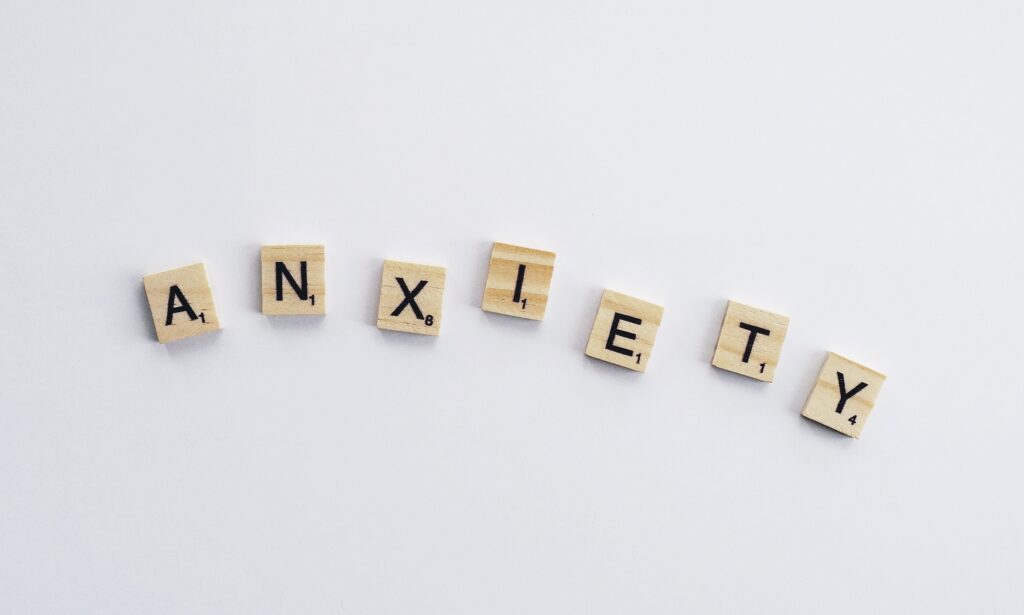
ADHD Overthinking: Soothing the Mind and Find Peace
I. Introduction
ADHD Overthinking: When Negative Thoughts Rule
ADHD overthinking! it’s that relentless whirlwind of “what-ifs” and “if onlys” that can make your mind an exhausting place to live, no matter how you try. For people with Attention Deficit Hyperactivity Disorder (ADHD), overthinking isn’t just a sporadic annoyance—it’s a constant companion.
The title of this blog post, “Overthinking: Soothing the ADHD Mind,” encapsulates our aim: to explore why overthinking and obsessive thinking is so prevalent in those with ADHD brains, and how we can begin to soothe this restless mind and those rolling emotions.
Attention Deficit Hyperactivity Disorder
ADHD is mental health condition often associated with impulsivity, hyperactivity, and inattentiveness. Still, another cornerstone of this condition that often goes unnoticed is overthinking. Over-thinking in the context of ADHD is like a record stuck on repeat or a hamster wheel that just won’t stop spinning. It can lead to significant mental fatigue, anxiety, and a feeling of being overwhelmed.
Understanding the connection between adults with ADHD and suffering intrusive thoughts is key to managing this challenging aspect of the disorder. In this blog post, we’ll delve deeper into the ADHD mind, unravel the complexities of overthinking, and provide strategies to help quieten the mental noise. Whether you’re an adult with ADHD who’s all too familiar with overthinking, or you’re simply interested in understanding this phenomenon better, this post will offer valuable ideas and insights.
II. Understanding ADHD and Overthinking
ADHD, or Attention Deficit Hyperactivity Disorder, is a neurodevelopmental disorder characterized by persistent patterns of inattention, impulsivity, and hyperactivity. But research suggests there’s more to ADHD than meets the eye. Beneath the surface-level ADHD symptoms, many individuals with ADHD grapple with incessant overthinking.
Overthinking is a common issue for many people, but for those with ADHD, it can be particularly intense and relentless. It’s like a mental tug-of-war, where your mind is constantly pulled in different directions, replaying past events, fretting about future uncertainties, intrusive thoughts or obsessive thoughts. and often struggling to focus on the present moment.

The connection between ADHD and overthinking stems from the way the ADHD brain processes information. The ADHD brain for example has a unique wiring: it tends to leap from thought to thought in rapid succession, making it difficult to calm the internal chatter. This characteristic, known as ‘racing thoughts’, can lead to a cyclical pattern of overthinking that’s hard to break.
The impact of overthinking on daily life can be significant. Thoughts that have you re-live past trauma, negative self talk, It can lead to feelings of anxiety, difficulty making decisions, trouble sleeping, and overall mental exhaustion. Recognizing and understanding these patterns is the first step towards managing overthinking effectively within the context of ADHD.
III. ADHD and Other Mental Health Conditions
ADHD rarely travels alone.
It often coexists with other mental health issues and conditions, which can exacerbate the tendency to overthink. Understanding these comorbid conditions can provide a more comprehensive view of overthinking in ADHD.
ADHD and Anxiety Disorders
Anxiety disorders are common among people with ADHD. The constant worry and fear characteristic of anxiety disorders can fuel the cycle of overthinking. For someone with both ADHD and an anxiety disorder, their mind may be persistently bombarded with worries about future events, leading to a state of mental hyperactivity.

ADHD and Obsessive-Compulsive Disorder (OCD)
Obsessive-Compulsive Disorder is characterized by unwanted repetitive thoughts (obsessions) and actions (compulsions). Although not as common as anxiety, when OCD coexists with ADHD, it can intensify overthinking. The person might find themselves stuck in loops of intrusive thoughts, further adding to their mental restlessness.
ADHD and Post-Traumatic Stress Disorder (PTSD)
PTSD can occur after a person experiences a traumatic event, leading to symptoms like flashbacks, nightmares, and severe anxiety. When PTSD and ADHD intersect, the individual may frequently relive the traumatic event, causing an overload of distressing thoughts and negative feelings.
These mental health conditions, when present alongside ADHD, can turn overthinking into an overwhelming whirlpool of thoughts. Recognizing these connections is crucial for effective treatment and management.
IV. Symptoms and Impact of Overthinking in ADHD
Overthinking can manifest in various ways for those with ADHD. It’s not always easy to recognize, especially since it often happens internally. Here are some common symptoms associated with overthinking:
1. Rumination: This involves dwelling on past events, mistakes, or problems. Individuals with ADHD may find themselves stuck in a loop of negative thoughts about something that happened long ago. This even takes a toll on the immune system. Say, for example, that the person is dwelling on a long gone rejection as if it were happening in the present. The mind then digs up other rejections and compounds the problem-
2. Worrying about the future: Those who overthink may spend excessive time worrying about future events, often imagining worst-case scenarios or getting stuck in a cycle of “what if” questions.
3. Difficulty making decisions: Overthinking can lead to decision paralysis, where even simple choices become overwhelming because of the constant analysis of every possible outcome.
4. Trouble sleeping: With so many thoughts racing through their mind, people with ADHD often struggle with insomnia. They might lie awake at night, their mind buzzing with thoughts and worries. Intrusive thoughts can wreak special havoc of the sleep deprived mind. If you can’t stop thinking, you can spend several hours tossing and turning

5. Feeling mentally exhausted: Overthinking can be mentally draining. Individuals may feel tired, stressed, or burnt out from the constant mental chatter. This is true for adults and children alike.
These symptoms can have a significant impact on a person’s mental health and self esteem.
V. The Overthinking ADHD Brain
The brain of a person with ADHD functions differently, which contributes to the tendency to overthink. Let’s delve into some cognitive processes that can lead to overthinking:
Racing Thoughts: Just as with children, the adult ADHD brain is often hyperactive, leading to a rapid succession of thoughts that can feel overwhelming. This constant mental activity can make it difficult to focus on one thing at a time, leading to a state of overthinking.
Repetitive Thoughts: People with ADHD often find themselves caught in loops of repetitive thoughts. This could be rehashing ideas from a past conversation, replaying an embarrassing moment, or worrying about future events.
Intrusive Thoughts: Intrusive thoughts are unwanted thoughts that pop into your mind unexpectedly. They are common in ADHD and can contribute to overthinking, especially if they are negative or distressing.
Understanding these over thinking processes can help individuals with ADHD realize that their overthinking is not a personal flaw but a characteristic of how their brain works. This understanding is a crucial step towards developing strategies to manage overthinking.
VI. Coping Strategies for Overthinking in ADHD
Thinking too much can be a challenging aspect of ADHD, but it’s not insurmountable. Here are some strategies that can help manage overthinking:
1. Mindfulness: Mindfulness involves focusing on the present moment without judgment. It can help quiet the mind and break free from the cycle of negative thoughts. Mindfulness exercises, like meditation or deep breathing, can be particularly helpful in managing ADHD overthinking.
Obviously, meditation requires your full attention, and we know from life experience that any stimulus in the external environment can distract us. Intrusive thoughts during meditation make your desire to stop overthinking feel quite futile.

Adults with ADHD are often aware of the utility of meditation AND the difficulty. Now, because our mental well being depends upon it, many people are turning to the meditation apps that help block out the outside world and help you lock in to the moment.
Choose shorter meditations: Between five and fifteen minutes long is perfect for example, and also you might want to go for an app with lots of different types of meditation. People living with adult ADHD symptoms know full well from life experience, that variety is the spice of life.
2. Physical Activity: Exercise is a natural mood booster that can help distract your mind from intrusive thoughts. Regular physical activity can also improve focus and reduce anxiety, which can help manage impulsive thinking. What kind of exercise you choose depends on your taste but runners often report that despite having ample thinking time, there are fewer unwanted thoughts.
If you follow a class such as Yoga or Qigong, you might think that you have more thinking time again. In fact, the exact opposite is true. All exercise is a healthy distraction and some physical movements even stimulate the cerebellum. You must exercise carefully and consciously. Your intrusive thoughts subside and the feel good hormones kick in.
3. Cognitive Behavioral Therapy (CBT): CBT is a form of therapy that helps individuals identify and change negative thought patterns. You can learn to deal with intrusive thoughts that center around hurtful things. It can be an effective tool for avoiding overthinking in ADHD. Remember that with the proper treatment, you can take control, calm symptoms and calm your mind.
4. Healthy Distractions: Engaging in activities you enjoy can help divert your attention from negative thoughts. This could be anything from painting to playing a musical instrument, or even cooking. You might even choose a video game. The best kind of game app will provide you with a variety of games and challenges. The brain training variety of app has the added stimulation of ever increasing challenge that can help busy your focus and thus avoid intrusive thoughts.
5. Positive Affirmations: Repeating positive affirmations can help counteract negative self-talk. They can act as reminders that you are more than your thoughts and can help shift your focus from the negative to the positive side. There are good apps that make this easy.
Remember, what works best may vary from person to person. It might take some trial and error to find what strategies work best for you. The key is to be patient with yourself and keep trying different methods until you find one that helps.
VII. Seeking Professional Help – Neuropsychological Testing
While the strategies mentioned can be helpful, there are times when professional help might be necessary. If excess thinking is left untreated, it might cause significant distress or interfere with your daily life and make you feel bad, it’s essential to seek help from a qualified mental health professional first. Check out our ADHD Test.

Psychologists, psychiatrists, and therapists trained in ADHD can provide valuable support and guidance. They can help you understand your thought patterns better and provide strategies to manage them effectively. Cognitive Behavioral Therapy (CBT), for instance, has been shown to be particularly effective in managing intrusive thoughts.
Medication may also be an option for some individuals. Stimulant and non-stimulant medications used to treat ADHD can help manage symptoms, including overthinking, by improving focus and reducing impulsivity. Medication and brain training might help with emotions.
Remember, there’s no shame in seeking help. Mental health is just as important as physical health, and taking care of your mind is a vital part of overall well-being.
In conclusion, overthinking can be a challenging aspect of ADHD, but with understanding, strategies, and professional help when needed, it can be managed effectively. Remember, you are more than your thoughts, and with the right tools, you can navigate the whirlwind of excessive thinking and find peace in your mind.
VIII. Conclusion and Final Thoughts
Overthinking in ADHD is a complex issue, deeply rooted in the unique brain wiring of individuals with this disorder. It’s a struggle that can often feel overwhelming, leading to mental fatigue, anxiety, and difficulty focusing. However, it’s important to remember that overthinking, like other symptoms of ADHD, can be managed effectively.
Understanding the nature of your thoughts, recognizing patterns of rumination or worry, and learning coping strategies are key steps in managing intrusive thoughts. Engaging in mindfulness practices, maintaining regular physical activity, seeking healthy distractions, and using positive affirmations can all contribute to reducing intrusive thoughts.
Furthermore, professional help plays a crucial role when thinking starts to interfere with daily life. Therapies like Cognitive Behavioral Therapy (CBT) and medications can provide significant relief and equip you with the tools to handle overthinking and help you generate healthier thought patterns.
Living with ADHD and dealing with intrusive thoughts can be challenging, but remember that you’re not alone. There’s a whole community of individuals with similar experiences, and there’s always help available. You are more than your ADHD, and with understanding and support, you can navigate through the sea of unwanted thoughts to a calmer, more focused mind. It might be worth checking out a cognitive test and see how your brain health is doing.












